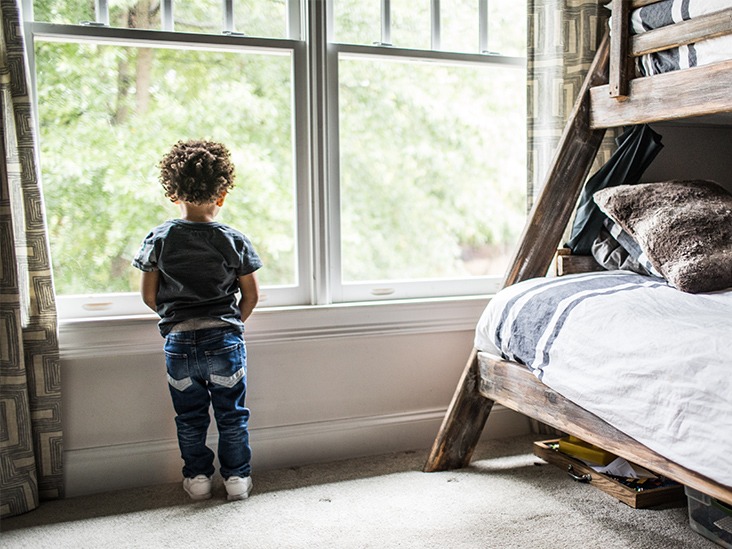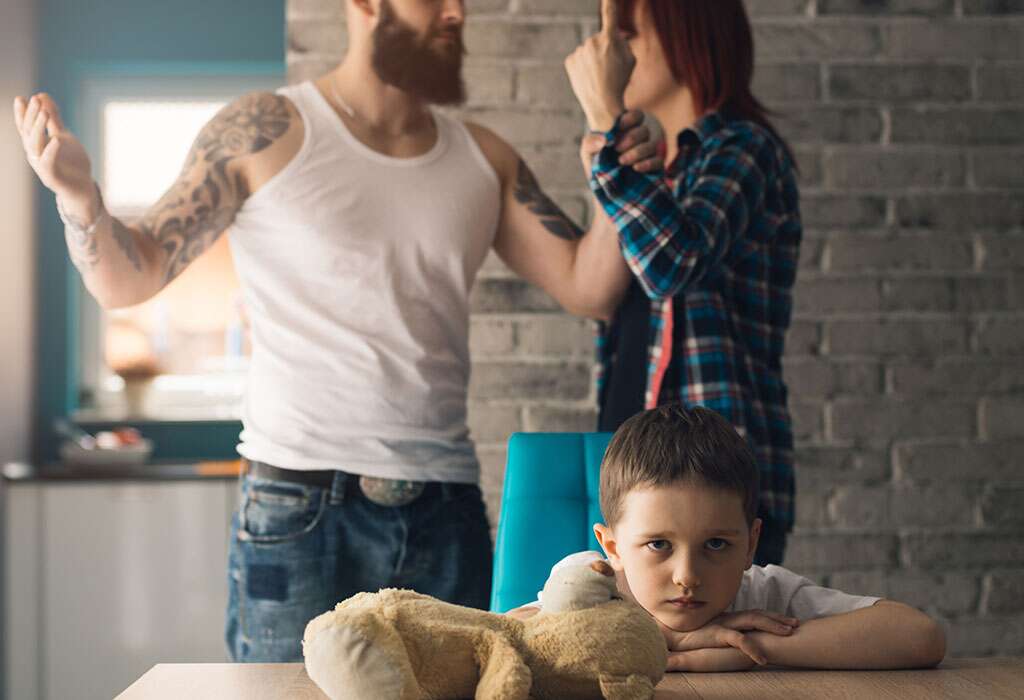
Most often, we hear parents who endure relationship abuse and Intimate Partner Violence (IPV) in their respective homes explain that the reason they continually choose to stay in such a highly toxic environment is because of the overall development of their children.
They highly (ignorantly) believe that choosing to remain with their significant others while enduring the abuse rather than leaving the environment altogether will be a much better alternative because they have been
programmed and conditioned to believe that children raised in a complete family unit (even if an abusive or dysfunctional one) tend to do better than children raised outside of the conventional family unit. Arguments have also been raised on the overall developmental abilities of children raised by single parents compared to those raised by non single parents with ignorant and snide remarks being made about how children raised by single parents tend to exhibit immoral behaviors, have poor grades in school, exhibit anger issues or generally become failures in life conveniently forgetting that even children raised in complete family units equally have the ability to exhibit such behaviors too. It is as though children raised by single parents have been put on a
societal high pedestal where they constantly have to prove themselves to extended family members, family friends and even strangers that they are worthy and can grow into responsible and successful adults just as a result of the subtle stigma placed on them.
However, choosing to endure abuse for the sake of the children and consequently raising them in dysfunctional home does more harm than good especially in shaping them as adults. Studies have constantly linked some dysfunctional behavior in adults to the environment they were raised in their childhood. Similarly it has also been shown that some of the life long traumas dealt with by a high percentage of adults can also be linked back to their childhood experiences within their immediate families. For context, below are 4 ways children raised in abusive homes may become affected in their adulthood:
1 . Engaging In A Series Of Destructive Relationships.
Research has shown that adults who constantly engage in a series of destructive relationships with people who are not any good for them (be it romantic or platonic relationship) can be linked back to being raised in a traumatic environment as a child. As a result, such children then grow into adults who are like a magnet to people who fit their traumatic identity like narcissists and emotionally detached people even when they are earnestly trying to make better relationships choices. Other times, they may end up with people who they feel the primary need to save or fix which really is just a projection of what they themselves desperately needed to be fixed in their childhood. Deep down, they want to be with someone who can provide their wants and needs, yet they unconsciously steer towards unhealthy yet familiar paths. At the beginning of such unhealthy relationships, there usually is a strong chemistry that makes them believe that at last they have finally found a relationship that would give them fulfillment since they are prone to believing in fairytales but yet again, they begin to feel let down after the initial “rush” and begin to experience a sense of familiarity with previous relationships. Repeatedly going through this pattern of engaging in destructive and unhealthy relationships can be very devastating and cause them to really question themselves and their decision making process as it relates to relationships. Until they are able to work on themselves, although wanting to do better, they may continue to unconsciously make a series of poor choices in their relationships.
2 . Or Totally Avoiding Intimate Relationships Altogether
It is not uncommon for adults who were raised in an abusive environment as a child to express a total disinterest in wanting to establish and maintain intimate relationships. As a much preferred alternative, they would rather involve themselves in a series of short term, casual relationships where they do not have to emotionally commit themselves to anyone thus appearing closed off and emotionally unavailable. Understand this, it is not that they do not want to experience the warmth of an intimate relationship, they are just traumatized by their childhood experiences in the environment they grew in and their inner child is simply afraid of the perceived “hurt” that may come with being close to an intimate partner. Other times, it is that they have learnt to suppress their emotions greatly from their childhood so much so that it becomes difficult to express them as adults ,even though they may so desperately yearn for the ability to. Consequently,they push those who truly care about them away because they subconsciously believe they are too flawed for anyone to accept them for who they really are and that they do not in turn have the capacity to treat those they truly care about the way they
deserve. This self protective measure can really deter them from developing an adult identity which can greatly play a role in making them feel unworthy of the joys of being in an intimate relationship.
3 . An Absence Of Empathy.
It can be difficult to be an adult who is empathetic and compassionate towards others if expressing emotions and showing feelings was a “taboo” during one’s childhood.Particularly,adults who grew in dysfunctional homes where silent treatments,gaslighting and other forms of emotional abuse where the order of the day tend to exhibit these same behaviors in the relationships they form with their friends, intimate partners and even their own children which can certainly be frustrating, intolerable and consequently push people away from hem. Also,when there was absence of emotions in the household as a child, it can result in adults who have little or no emotional identity which can lead to confusion and an unstable sense of self because they cannot manage strong emotions which is needed to be able to make quality decisions. It can also pose as a problem because in the long run, it may lead to the inability to form healthy relationships with people and can cause problems with
impulsive decisions.Consequently,it can cause people around them to believe that they have no emotions or are insensitive when in fact they do feel emotions though muted or of a limited range that do not go beyond surface level. These kind of people may also have a low self esteem and feel only negative emotions about themselves thus making it hard for them to accept genuine kindness, compliments and shows of gratitude from others. This definitely leads to problems in their intimate relationships as emotions play a big role in sustaining intimacy. It may also shape the choices they make in their careers thereby stunting advancement.
4 . Inherited Abusive Parenting Styles.
It is super easy for adults who grew in a dysfunctional and toxic home where they not only witnessed constant abuse but were also themselves abused to inherit some of the parenting style(s) adopted by their parents. Over time, research has repeatedly shown that harsh verbal, physical and symbolic acts or punishments which are designed to instill fear or intimidate a child such as constant belittling, beating or the destruction of a favorite object are not only ineffective but also are harmful and can cause severe long term effects on children and consequently cause behavioral problems which can inevitably shape children into adults who later on become parents. It is not strange to hear some parents recall their own childhood experiences especially when being confronted or called out by their children on some of their behaviors telling tales of how they had it worse with their own parents but forgetting how the behaviors of their parents made them feel as children.
These are just a quarter of ways by which children raised in abusive
homes may be affected in their adulthood. There are so many other life
long consequences, ripple effects and traumas that children raised in
abusive homes are both consciously and unconsciously exposed to which
can be really difficult and sometimes impossible to correct in adulthood.

